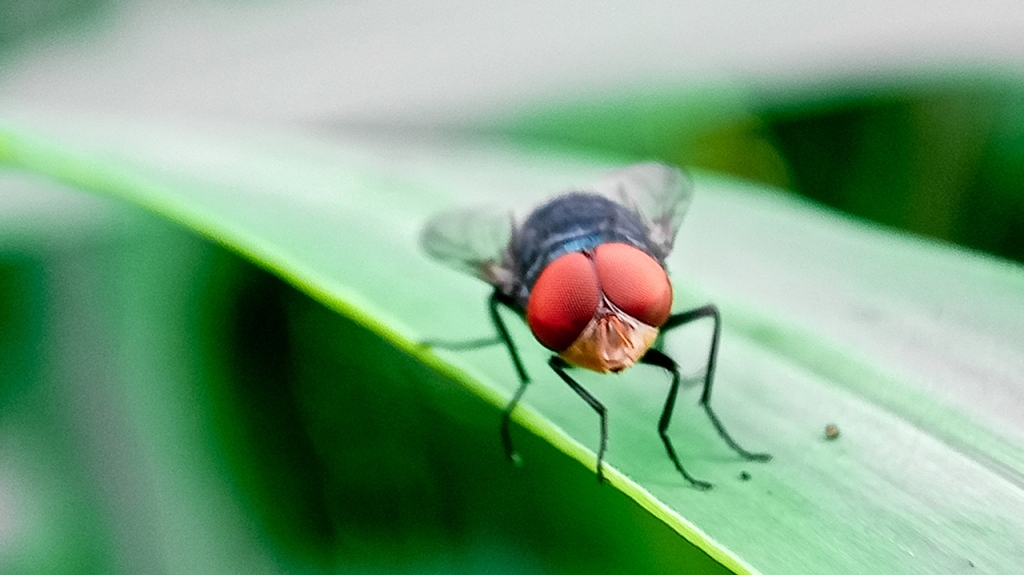Agriculture Secretary Brooke Rollins is pressing Mexican authorities to allow more unfettered access to flight crews trying to eradicate the outbreak of New World Screwworm in southern Mexico, or the United States will again suspend imports of Mexican livestock.
In November 2024, the U.S. Department of Agriculture (USDA) was notified that New World screwworm was detected in Mexico. USDA’s Animal and Plant Health Inspection Service has been working to increase surveillance, inspection, and other measures to counter this pest. Those measures include the use of the sterile insect technique, which requires the continuous release of sterile male screwworm files that breed with wild screwworms and result in no offspring, eradicating the species.
Unfortunately, Mexican authorities have failed to uphold their end of the agreement by disrupting planes carrying these sterile male files, refusing pilots permission to land, and instituting customs duties on flight components, sterile flies, and sterile insect technique equipment.
“The U.S. spent millions of dollars to eradicate New World screwworm from our borders in the 1960s but unfortunately, we are now facing this dangerous threat again,” said National Cattlemen’s Beef Association (NCBA) President and Nebraska cattleman Buck Wehrbein. “Screwworm is very destructive and could cost American producers millions of dollars a year if it reaches us. Americans have been investing in prevention efforts in Central America for decades, but we can’t stop this without Mexico’s participation. NCBA strongly supports Secretary Rollins holding Mexico to their commitments regarding screwworm eradication.”
“We have received multiple reports that critical flights carrying these sterile flies have been denied permission to land, faced bogus paperwork issues, and been charged high customs fees. As a result, we have lost significant time and investment that has allowed these dangerous pests to spread unchecked into southern Mexico,” said NCBA Senior Vice President of Government Affairs Ethan Lane. “In light of those reports, NCBA met with the Mexican Embassy earlier this week to deliver the message that the Mexican government needs to be a partner on eradicating screwworms to protect both animal and human health. It’s time for Mexican authorities to act and we appreciate Secretary Rollins standing with American and Mexican cattle producers who want to see this pest stopped dead in its tracks.”
Last week, NCBA President Wehrbein also met with senior officials at the Embassy of Mexico in Washington, D.C. to press for further action on screwworm eradication.
In her letter, Secretary Rollins listed the issues of concern and what the U.S. wants Mexico to do. “If these issues are not resolved by April 30, USDA will restrict the importation of animal commodities, which consist of live cattle, bison, and equine originating from or transiting Mexico to protect the interest of the agriculture industry in the United States,” Rollins stated.
Rollins was critical of Mexico for not launching “full deployment of sterile insect technique” operations, which she stated “represents a lost opportunity to contain this pest and prevent its spread beyond the Isthmus of Tehuantepec in southern Mexico.”
Essentially, Mexico has imposed restrictions on a USDA Animal and Plant Health Inspection Service (APHIS) contractor, Dynamic Aviation, from conducting “high-volume precision aerial releases” of sterile flies that USDA stated is needed to suppress and eliminate the NWS population.
“The inability of any more of these providers to operate fully comprises the integrity of our regional strategy,” Rollins wrote to the Mexican Ag secretary.
Mexican authorities have limited Dynamic’s flights under a 60-day permit. Mexico also has limited operations to six days a week instead of seven days. Mexican authorities also are “imposing substantial import duties on critical aviation parts, dispersal equipment, and sterile fly shipments,” despite the fact that the entire operation is being funded by the U.S. government “to support our shared goal of stopping the northward spread of NWS and pushing the disease back toward the biological barrier of the Darien gap. The Darien gap is a 60-mile stretch of jungle between Central America and South America.
“We do not understand how our official efforts to stop a common pest can be subject to such burdensome custom duties,” Rollins wrote in her letter.
Rollins called on her counterpart to engage both customs and other relevant federal officials to help facilitate Dynamics’ operations “for a minimum of one year, preferably as long as needed or indefinitely.”
Rollins also called for clearance and a waiver of import duties for aircraft parts and the sterile flies, and for Mexico to designate a high-level point of contact in the Mexican government to work directly with APHIS.
Rollins noted, “Time is of the essence. Every delay in granting fully operational authority and eliminating customs barriers undermines our collective ability to carry out this emergency response.”
Year-to-date, Mexico has exported more than 155,400 cattle to the U.S., the vast majority of which are feeder cattle. That’s roughly 274,000 fewer cattle imports from Mexico compared to the first four months of 2024.
The U.S. had temporarily banned Mexican cattle imports on Nov. 22, 2024, but reopened the border to Mexican cattle on Feb. 1, 2025.
###
USDA/NCBA/DTN


